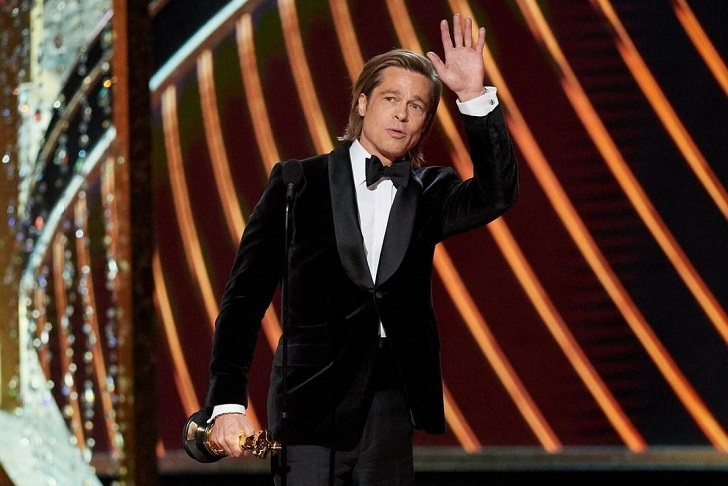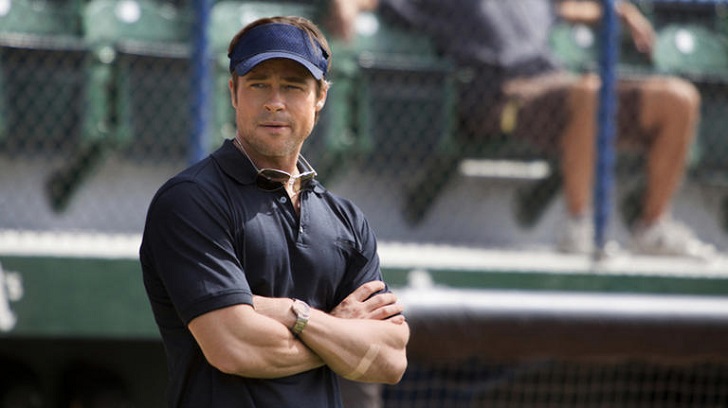Brad Pitt is one of those rare Hollywood icons whose career has spanned decades, evolving from heartthrob to respected thespian. So, is Brad Pitt a good actor? His journey through cinema offers a compelling argument that not only is he skilled, but he may be one of the best actors of the 21st century.
Brad Pitt’s Cinematic Journey
From his breakout role as the charming drifter in Thelma & Louise to his complex performances in films like Fight Club and Once Upon a Time in… Hollywood, Brad Pitt has consistently delivered compelling performances that blend intensity with a nuanced understanding of his characters. His ability to balance dramatic roles with an undercurrent of humor makes him a versatile and skilled actor.

@bradpittofflcial | Instagram | Brad’s portrayal of the easy-going stuntman Cliff Booth in Quentin Tarantino’s Once Upon a Time in… Hollywood—earned him an Oscar.
His portrayal of the easy-going stuntman Cliff Booth in Quentin Tarantino’s Once Upon a Time in… Hollywood—a role that earned him an Oscar—perfectly illustrates this balance. Pitt’s Cliff is both cool and contemplative, his charisma complemented by a sardonic wit that steals nearly every scene. This performance alone could serve as a masterclass in subtle film acting.
Brad Pitt’s Diverse Film Roles
Brad Pitt’s career is marked by a fearless choice of roles spanning various genres and demands. From a crazed animal rights activist in 12 Monkeys to a wizened, tactical WWII officer in Inglourious Basterds, Pitt has shown an admirable depth. Each role is infused with his signature blend of seriousness and levity, making even potentially clichéd characters brim with authenticity.
In Moneyball, he plays Billy Beane, a real-life figure struggling against conventional baseball wisdom to reinvent his team. Pitt captures the frustration and determination of Beane, utilizing a restrained performance that communicates volumes through subtlety—an approach often more challenging than the more overt demands of action or comedy.

Jeremy Smith | MSN | In Moneyball, Brad Pitt plays Billy Beane, a real-life figure struggling against conventional baseball wisdom to reinvent his team.
Brad Pitt’s selection of roles reveals a strategic avoidance of typecasting. His film choices are unpredictable, moving smoothly between high-octane blockbusters like World War Z and introspective dramas like The Tree of Life. This versatility keeps his career dynamic and unpredictable, allowing him to surprise and captivate audiences anew with each performance.
His role in the action-comedy Bullet Train illustrates his ability to adapt and thrive in any cinematic environment. As the quirky hitman known as Ladybug, he delivers lines with a deadpan precision that punctuates the film’s sardonic humor, turning what could be a straightforward action role into a memorable and standout performance.
Brad Pitt’s Impact Beyond the Screen
Apart from his on-screen prowess, Pitt’s influence extends into production and philanthropy, shaping the film industry behind the scenes as well. His work with Plan B Entertainment has produced critically acclaimed films like 12 Years a Slave and The Big Short, demonstrating his commitment to telling meaningful stories.

@bradpittofflcial | Instagram | Pitt’s influence extends into production and philanthropy, shaping the film industry behind the scenes as well.
Moreover, his ability to remain relevant in an ever-changing industry—gracefully navigating personal and professional highs and lows—speaks to his enduring appeal and savvy understanding of Hollywood dynamics.
Brad Pitt’s career is a testament to the power of skilful acting fused with intelligent career management. Whether he’s playing a romantic lead, a brooding hero, or a comic relief, he brings a depth that transcends the conventional boundaries of movie stardom. His continual evolution as an actor not only entertains but also enriches the cinematic landscape, proving time and again that he is much more than just a handsome face.







